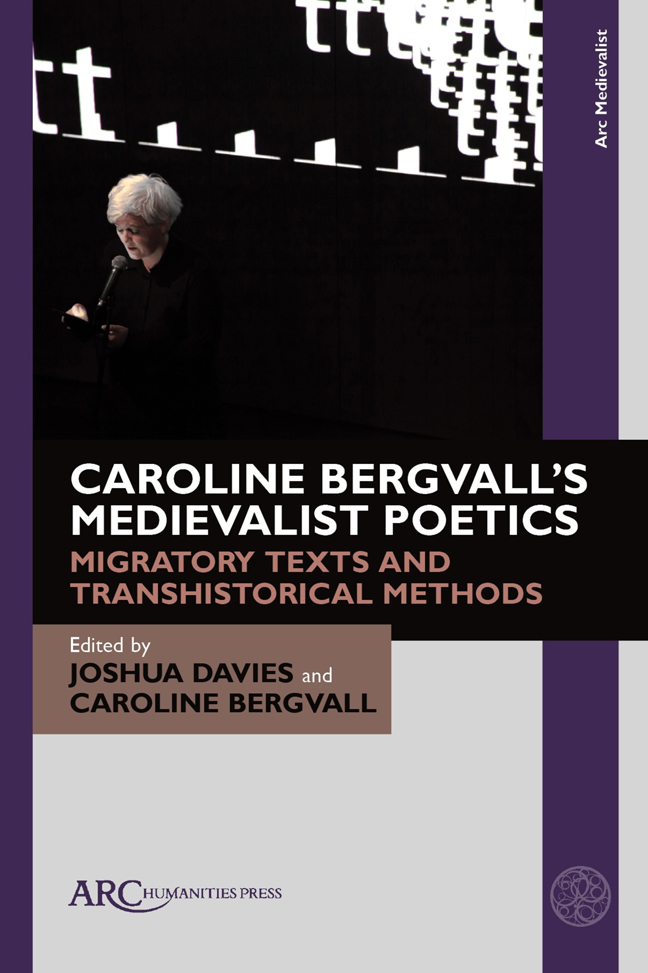Chapter 29 - Interview with Greg Nissan (2019)
Published online by Cambridge University Press: 20 February 2024
Summary
Greg Nissan: This book explodes one of Chaucer’s tales—“The Wife of Bath’s Tale”—but uses Alisoun’s voice. When did that voice first catch on for you? I know you began this project ten years ago. What were some of the troubles with setting it down and picking it up again?
Caroline Bergvall: There’s a treacherous aspect to going back to a voice. I started developing it just after Meddle English. It was my fifth shorter Chaucer tale and came out in a tiny edition with Belladonna* called Alyson Singes, a totally different spelling and everything. I was never able to continue the voice—I tried on and off for years. I wasn’t happy with it. It was unclear to me why. It’s the toughest project I’ve ever written. But that voice is nearly the bully; it pushes and pushes me on. We’re in a time where we are asking questions about social living in the face of political and capitalist devastation, environmental catastrophes, intense processes of migration that can only increase. I think that begs the question: How do we speak in such a way that we can be listening as well? What is it that justifies the poetic and the literary form?
GN: I love that, as it seems to capture Alisoun’s double agency, where she is both listening to many other voices—channeling transgressive figures throughout centuries, many women—and speaking up at the same time. Were there moments where you felt particularly bullied or pushed back into the voice? I think of what you wrote about the day of Trump’s inauguration: “No peripheral point in this rounded world.”
CB: Yes, that line I recorded at the Global Women’s March. Shared anger that unlocked desperate optimism and major translocal connections. And then the whole Me Too movement and Black Lives Matter—initially how both movements had taken very bullied and undervalued identities to protect and collectivize them. I was wondering how to take up new positions within feminism, transnationalism, queer postwar traditions that had got devalued and needed re-injection. One of the necessities of collective movements is that you have to, not simplify, but become really, really clear. Through that clarity you can accumulate and bring in more people with dispersed experiences or dispersed messages.
- Type
- Chapter
- Information
- Caroline Bergvall's Medievalist PoeticsMigratory Texts and Transhistorical Methods, pp. 215 - 220Publisher: Amsterdam University PressPrint publication year: 2023



